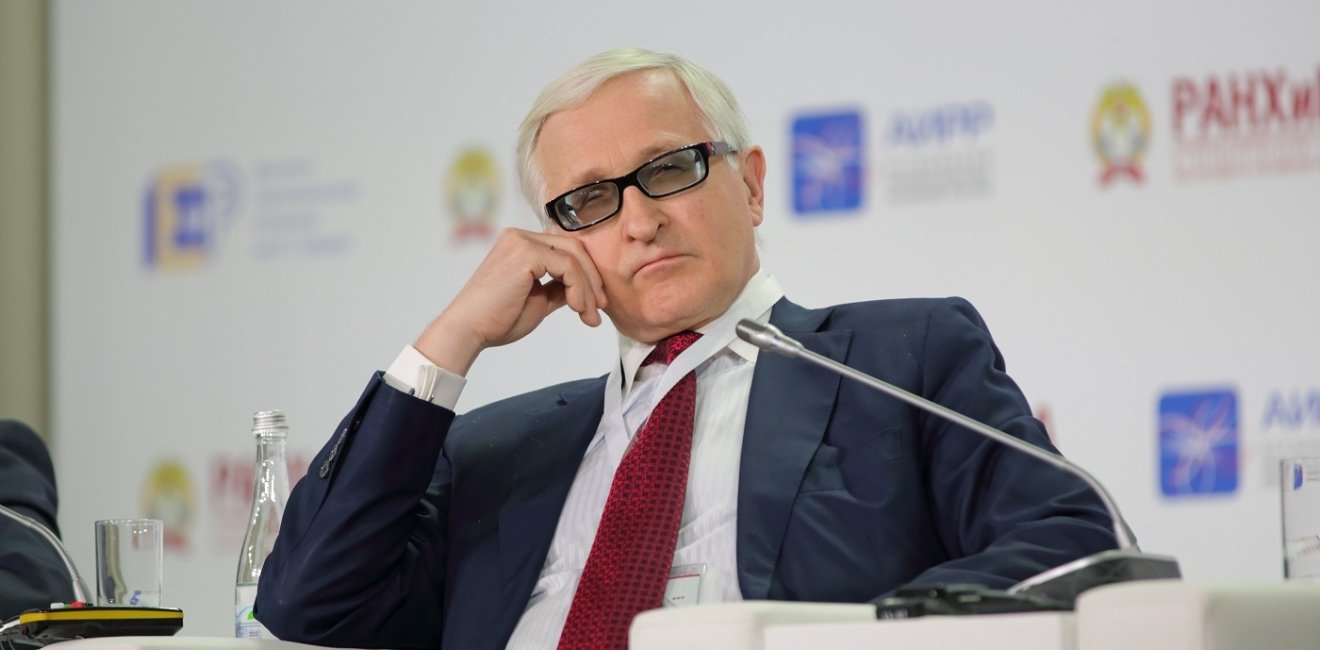
A blog of the Kennan Institute
Alongside its war against Ukraine, Russia is pursuing another “special operation,” this time on the economic front. The Russian attorney general’s office is busy relieving business owners of their property and redistributing it through judicial proceedings, citing violations that allegedly occurred during the privatization process decades ago.
The number of such lawsuits is growing exponentially. Businesspeople who have spoken out against the war or who have left Russia and thereby lost their informal standing among the loyal elites face a very real possibility of losing their assets. Those who try to distance themselves from Russia’s war and aggressive policies lose the ability to defend their holdings through informal networks. Powerful loyalists are jumping at this opportunity and making Russia’s law enforcement and administrative machines work in their favor.
Until 2020, cases of the attorney general going to court to correct privatization irregularities were rare, research shows. Three such lawsuits were filed in 2020, and another three in 2021. The beginning of the war opened Pandora’s box: in 2022, six lawsuits were filed; in 2023, forty were filed. In all, 180 firms were mentioned in those forty cases, with a combined worth upward of 1 trillion rubles (U.S. $11 billion).
Cautious Defense
In September 2023, Alexander Shokhin, the Kremlin-loyal head of the Russian Union of Industrialists and Entrepreneurs, publicly expressed dissatisfaction with the unpredictability of the situation. The day after Shokhin’s interview, the Russian president said no deprivatization campaign was under way.
However, this did not reassure the association, which in early 2024 prepared amendments to the legislation to establish at least some guarantees of compensation for property that is effectively nationalized. The Union of Industrialists and Entrepreneurs has something to worry about. Many of the companies that fell under government control as a result of the attorney general’s orders were later resold. As a consequence, in 2023, the federal property management agency beat the privatization revenue target by sixteen times. The Ministry of Finance has proposed increasing the plan by 100 times for 2024.
Business owners rarely win in these proceedings. The attorney general’s office simply does not lose such cases. It seems that if a firm was privatized in the nineties, the owners should be securely protected by the statute of limitations. However, the authorities employ a controversial legal tactic.
State Firms Scooping Up Private Assets
Russian legislation sets the statute of limitations for challenging privatization deals at three to ten years. After the expiration of ten years from the transaction, the court cannot nullify it.
The prosecution and courts bypass this limitation in two ways: either they consider lawsuits to protect the interests of society (in which case the statute of limitations does not apply), or they start counting the statute of limitations as beginning not at the moment of the transaction but at the moment of the prosecution’s inspection, shortly before the lawsuit is filed.
Despite the clear and unambiguous violation of the law’s requirements by the second approach, courts have in all instances agreed with the prosecution, recognized the ownership of the enterprise as unlawful, and transferred the ownership rights to the state without compensation to the owner.
Among such cases of deprivatization, the dispute over the privatization of the Kuchuksulfat enterprise in the Altai Krai is a prime example. In 2021, the prosecution pointed out that in 1991, the factory employees who had bought out the enterprise committed violations since local authorities had conducted the privatization, while the owner of the enterprise, the Russian Federation, made no decision on privatization. The court not only did not apply the statute of limitations, it also indicated that merely invoking the statute of limitations constituted an abuse of rights, as it is aimed at retaining unlawfully obtained shares of the enterprise.
In making its case, the court ignored that the largest shareholder of the enterprise had purchased shares fourteen years after privatization and invested in modernizing production, and management had turned the enterprise into one of the largest taxpayers in the region. The shares were all recovered without charge and returned to government ownership.
The subsequent fate of the firm is striking as well. In 2023, the factory was put up for auction and acquired by the company Roskhim. Journalists link this company to the Rotenberg brothers, close personal friends of Putin. In addition to Roskhim, two other contenders formally participated in the auction. However, one failed to submit the necessary documentation and the other did not pay the deposit, making Roskhim the sole genuine participant and automatic winner of the auction.
Whether by chance or not, before this, Roskhim had acquired or taken control of several other chemical industry enterprises, the privatization of which the courts had deemed illegal and so had returned the enterprises to the government.
Selective Application of Anti-Corruption Laws
The attorney general's office has articulated yet another ground for transferring enterprises into state ownership free of charge: violation of anti-corruption legislation. It may sound ironic, but while prosecutors typically don’t respond in criminal procedures to anti-corruption investigations by journalists and public figures, corruption allegations are utilized, if needed, for deprivatization in civil courts.
For example, in early May 2024, a court nationalized one of Russia’s largest pasta production facilities, Makfa. The attorney general’s office filed a lawsuit to seize the enterprise from the former governor of Chelyabinsk region, Mikhail Yurevich, and former State Duma deputy Vadim Belousov. According to the prosecution, with which the court agreed, the governor and the deputy conjoined public service with entrepreneurial activity, as a result of which the enterprise should be transferred to state ownership. The firm is now state-owned, likely temporarily.
Yurevich left Russia years ago after losing to other clans in local rivalries. He was later charged in absentia with corruption.
Even high-ranking politicians loyal to the state have a chance of parting with their property: in 2023, a court ruled in favor of the prosecutor’s office, seizing a 45 percent stake in the Kaliningrad Sea Trading Port from Andrey Kolesnik, a State Duma deputy from the United Russia party, and his mother-in-law. The basis for the seizure was the violation of anti-corruption legislation and the importance of the port for national security.
Interestingly, according to media reports, 98 percent of the port’s shares seized from Kolesnik and other shareholders are planned to be transferred to Rosatom, the state-owned nuclear energy conglomerate. Rosatom currently owns the transportation company FESCO, which the government previously seized from Ziyavudin Magomedov, founder of the Summa Group and an oligarch who had fallen out of grace with the Kremlin. Magomedov and his brother were arrested in 2018 on charges of embezzlement; such charges are often used against businesspeople by their Kremlin-connected enemies.
The Kremlin is busy consolidating power among loyalists. But the systematic targeting of businesses through legal and bureaucratic maneuvers highlights a concerning disregard for legal norms and property rights. This phenomenon not only undermines the rule of law but also creates a climate of fear and instability within the business community.
The opinions expressed in this article are those solely of the author and do not reflect the views of the Kennan Institute.
Author


Kennan Institute
After more than 50 years as a vital part of the Wilson Center legacy, the Kennan Institute has become an independent think tank. You can find the current website for the Kennan Institute at kennaninstitute.org. Please look for future announcements about partnership activities between the Wilson Center and the Kennan Institute at Wilson Center Press Room. The Kennan Institute is the premier US center for advanced research on Eurasia and the oldest and largest regional program at the Woodrow Wilson International Center for Scholars. The Kennan Institute is committed to improving American understanding of Russia, Ukraine, Central Asia, the South Caucasus, and the surrounding region through research and exchange. Read more

Explore More in The Russia File
Browse The Russia File
Chechnya as a Model of Modern Russia

Russia’s Indigenous Communities and the War in Ukraine

Gas and Power in a Changing US–Russia Relationship

